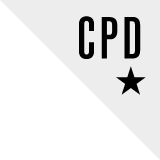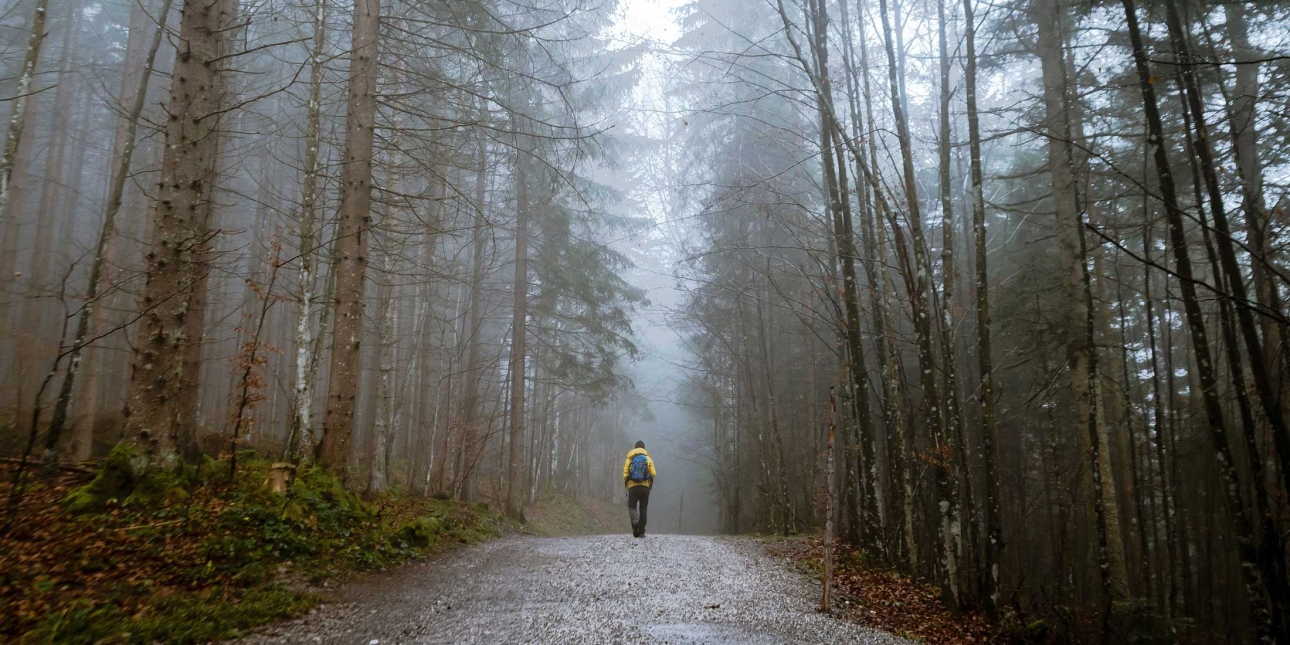Creativity in the Hybrid Age
According to many PR firms, fostering creativity has become more difficult under the hybrid working model. From walking for inspiration to lying on the floor (yes, really), agency heads and creativity experts share their tips with Christian Koch.
Creativity: it's one of the most important skills a comms professional can have. Of course, if anybody wants to nurture their inner Kahlo, Kerouac or Kendrick, PR is probably the wrong place. But the ability to devise novel ways to promote a new business, or craft a compelling campaign or killer pitch, requires imaginative, visionary lateral thinking. During the pandemic and subsequent ‘permacrisis' this need for innovative ideation has only escalated.
"Today, clients and businesses are in crisis mode, facing challenges like never before," says Victoria Lewis-Stephens, founder/CEO at United Culture. "In order for PR professionals to come up with the right stories that'll resonate with people and showcase an organisation, we're having to be more creative because these businesses are getting new things thrown at them every day."
During the pandemic and subsequent ‘permacrisis' the need for innovative ideation has only escalated.
In normal times, PR firms can cope with such challenges. But there's one obstacle currently in the way: 2022's working environment. Today, most PR firms in the UK favour a hybrid working model. With staff scattered between homes, the office and who-knows-where-else, it becomes more difficult to hold brainstorming sessions or idea showers. The age of hybrid has led Bank of England boss Andy Haldane to bemoan that WFH is "damaging Britain's creative potential" or top thinker Malcolm Gladwell to say, "offices really do matter" for "collaborative, creative work".
"[Lack of creativity] is definitely an issue for nearly every agency head I've spoken to in the past few years," says Richard Stone MCIPR, founder of Staffordshire-based PR firm Stone Junction. "Providing you've got a good place to work, remote-working is useful for thinking or if you've got a long article or white paper to write. But generating news and campaign ideas is difficult unless you're around other people."
Short of press-ganging staff back into the office for "extremely hardcore" 80-hour weeks à la Elon Musk, what can be done? With many PR firms unlikely to return to pre-Covid working arrangements (only 1% of comms professionals are prepared to work a full five-day week in the office according to the Work Search's Salary Guide 2022), Influence asks agency heads and a leading trainer how to encourage more creativity from fully remote or hybrid staff…
Conduct remote workers like an orchestra
"When it comes to creativity in your staff, managers need to understand there's no one-size-fits-all," says Dannie-Lu Carr, a training consultant/executive coach who teaches creative thinking. "You'll have introverts, extroverts, neurotypical, neurodiverse, people who learn in a visually, others who learn by listening. To orchestrate creativity in your team, it's realising that everybody processes things differently. Are they more creative when walking in nature? Or bouncing ideas with three other people? [As a manager] you'll need to pay more attention to your staff, but it's worth it if you want them to be creative. Don't micromanage: let them manage their own time/space and they'll deliver for you."
Take it to the streets with walking meetings
"There's nothing like a night time stroll to give you ideas," said JK Rowling. And the Harry Potter author is definitely onto something: walking meetings (the kind of bipedal tête-à-tête favoured by Steve Jobs and everybody in The West Wing) can boost creative output by 60% according to one Stanford University study. Best of all, they can be held virtually via our smartphones.
United Culture has regular half-hour walking meetings, which it started during the pandemic. "There's something about being out of your natural environment that makes you think differently," says Lewis-Stephens.

Victoria Lewis-Stephens
Shared servers and ‘hookbooks'
Because inspiration can come from, well, just about anywhere, many PR heads encourage staff to record potential muses. "At United Culture, we have a shared server, so if anybody sees something which is cool or different - a piece of art, something that makes us laugh - we pop it on the server and share it with the group for stimulus, even if it's unrelated to their jobs," says Lewis-Stephens. Meanwhile, over at Stone Junction, employees carry note-pad-style ‘hookbooks where, according to boss Stone, "every time somebody encounters something that would get them a point on QI, they scribble it down, eventually building up a huge reservoir of things they can use [for idea-generation]."
Workers think less creatively in videoconferencing meetings (apparently the visual stimulus of the screen - not to mention colleagues' home décor choices - affects cognitive focus).
Hybrid is great for brainstorming…
As many PR teams have come to realise over the past 2.5 years, Zoom isn't the best place for a brainstorming session. It's backed up by research from Columbia and Stanford Universities, which found that workers think less creatively in videoconferencing meetings (apparently the visual stimulus of the screen - not to mention colleagues' bookshelves/ home décor choices - affects cognitive focus).
Forcing staff to be "creative" on the spot is the "worst thing you can do", says psychologist Dr Helena Boschi, who specialises in neuroscience. "Brains can't create under pressure; brainstorming should be used to select ideas, not generate them."
Indeed, adopting a half-half hybrid approach is best for ideation: allowing staff to evolve ideas at home (briefing them beforehand; see below) before sharing their brainwaves a few days later in a collaborative workplace session.
Stone likens the process to a musician writing a song. "If you listen to a demo of a great song somebody has written alone at home, it'll sound incomplete and never as good as the final version with other musicians," he says. "All great pieces of music need collaboration."
Lewis-Stephens agrees: "There aren't many people who can be spontaneously creative; you've got to give people time to reflect and find their own stimulation. There have been many times we've been grappling with ideas, then somebody will come into the office and say, ‘I've had a great idea in the shower this morning!' It's because they've stopped thinking about work and let their unconscious mind kick in."
… but give staff concrete pointers first
"Creativity needs a bedrock on which to operate," says Stone. "If you were to ask a musician to write some music, they'd struggle. But if you were to say, ‘Write me some sad music about Mondays', they'd come up with something. Give them a platform on which to operate is liberating, not constricting."
The art of letting your mind wander…
"We come up with our best ‘OMG eureka moments when we're going for a walk/run, having a shower or falling asleep," says Carr. "It's because we're relaxed and joining the dots, making sense and letting the right-side of our brains reflect, problem-solve and process information… Usually creative answers are right under your nose."
She gives the example of Rolling Stones' guitarist Keith Richards, who came up with the riff for (I Can't Get No) Satisfaction not in a studio, but waking in the middle of the night in a Florida motel room.
"The problem is many of us feel like naughty children and don't give ourselves permission to have 10 minutes off," she adds. "If you've got 10 minutes between meetings, the worst thing you can do is go straight to Slack or WhatsApp. Instead, go for a walk around the block. Or better still - and you may laugh - lie down on the floor. You'll be more creative, as it gives you more headspace. Working from home doesn't have to always involve sitting at a laptop."

Dannie-Lu Carr
Harnessing serendipitous encounters
In recent years, many businesses (mainly Silicon Valley tech titans) have championed the idea that workplace creativity comes from accidental collaboration: think Google keeping queues for its (free) lunches deliberately long so staffers get chatting to others from other departments. Stone cites the ‘Infinite Corridor' at the Massachusetts Institute of Technology, which "consists of one long corridor (251m) and loads of incubation rooms on the side. You could get a microbiologist suggesting ideas to a quantum computing expert, who proposes ideas to a linguistic programmer… Because of this, loads of incredible tech ideas are generated there."
All very good, but how can you achieve this when working remotely?
Stone recommends attending CIPR networking events. "You'll soon find inspirational people you're impressed with, who can suggest ideas that may not normally come up within your own company. Becoming a mentor at the reverse mentoring scheme CIPR/ Taylor Bennett Foundation [an organisation which creates opportunities in PR for ethnically diverse candidates] can be incredibly useful and beneficial [for ideas]."
Lewis-Stephens agrees. "If you brainstorm with the same people, you tend to develop groupthink. By bringing in different perspectives and viewpoints, you're forced to think differently. Creativity can come from anywhere within an agency; as a manager, you need to create that structure to let it happen."
Having a zzz…
According to a recent survey by Sky Broadband, homeworkers have an average three naps a week (during the same five days, they also watch four TV episodes, shop online twice while a quarter never change from their pyjamas). This isn't as disastrous for creativity as it seems: one recent study by the Paris Brain Institute found that a 20-minute doze can jump-start creativity.
"Sleep's brilliant for creativity!" says Carr. "Being in the liminal zone [the state straddling subconscious/dream world and being awake] is great for ideas. As long as your remote-workers get their work done, who cares if they've had a snooze?"
.jpg&w=728&h=90&maxW=&maxH=&zc=1)

